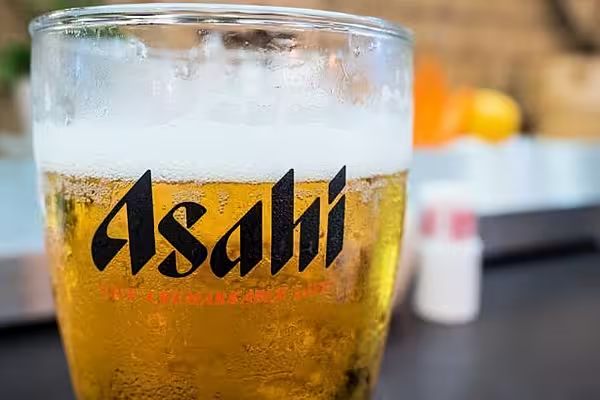The glass for Anheuser-Busch InBev NV was more than half full in April, when it revealed plans to sell SABMiller Plc's beer brands in central and Eastern Europe as part of their "Megabrew" merger.
It's positively overflowing now that Asahi Group Holdings Ltd. has agreed to buy the assets for $7.8 billion.
Analysts at Bernstein had forecast that the business could raise between $5 billion and $6 billion. Asahi's paying almost 15 times the central and European beer businesses' 2016 Ebitda of 493.8 million euros, topping the 10-14 times range expected when the businesses were put up for sale.
So Asahi is paying a pretty punchy premium. The price was forced up by competition both from other trade buyers and private equity groups.
Unlike the $1.6 billion sale of SABMiller's 49 percent stake in China Resources Snow Breweries, the central and eastern European beer businesses were assets that Megabrew probably didn’t mind parting with.
The markets are big, slow growing, and price competitive, which wasn't ideal for SABMiller given it has the third-biggest share in eastern Europe after Carlsberg A/S and Heineken NV, according to Euromonitor International. The regions are missing the young, fast-growing populations that drive emerging market growth for beverage companies, which is just why AB InBev was prepared to let them go.
The market characteristics, not to mention the hefty price tag, might explain the 4.6 percent slide in Asahi's share price following the announcement of the deal.
Still, if anyone has experience of steering a business in regions where growth is slow and populations are declining, it's Asahi, which traces its origins to 1889 Japan. And while the central and eastern European businesses haven't been performing particularly well lately, they aren't falling off a cliff either, so Asahi is taking on a steady rather than sinking ship. It might also derive some synergies after paying 2.3 billion euros ($2.4 billion) for SABMiller's premium beer brands -- Peroni, Grolsch and Meantime -- earlier this year.
Asahi will need all the economies of scale it can get from the central and Eastern European beer brands after paying up to clinch them.
As for AB InBev, which acquired SABMiller for more than $100 billion, the disposal helps to chip away at a net debt pile that may reach $97 billion this year, according to the median estimate of analysts surveyed by Bloomberg. Its shares have responded accordingly, rising 1.5 percent.
Still, its stock is down 15 percent since the end of September -- there are bigger problems afoot, not least of which is AB InBev's six consecutive quarters of profit misses. Shares have also been hurt by investors' move away from consumer staples into a preference for growth stocks.
The sale of the central and Eastern European assets are worth toasting. But it will take more than beer money to make this brewing behemoth work.
--With assistance from Gadfly's Chris Hughes
This column does not necessarily reflect the opinion of Bloomberg LP and its owners.
News by Bloomberg, edited by ESM. To subscribe to ESM: The European Supermarket Magazine, click here.














